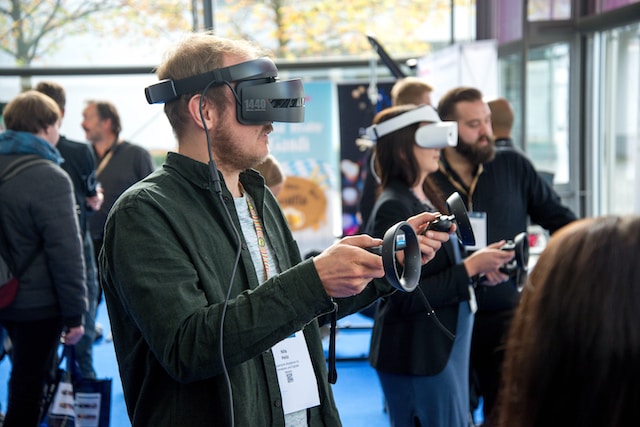Virtual Reality in Journalism: Revolutionizing the Newsroom
Virtual reality (VR) technology has made significant strides in recent years, transforming various industries and offering new and immersive experiences. One field that has embraced this technology with open arms is journalism. Virtual reality in journalism has the potential to revolutionize storytelling and how news is consumed.
1. Enhancing the News Experience
Virtual reality allows journalists to transport their audience into the heart of the story. By creating immersive experiences, VR enables viewers to feel like they are present at the scene, providing a deeper level of engagement and understanding. Whether it’s covering a breaking news event, documenting a historical moment, or sharing the experiences of others, VR brings the news to life in ways that traditional media cannot.
2. Breaking Down Geographical Barriers
One of the key advantages of virtual reality in journalism is its ability to transcend geographical limitations. With VR, journalists can take their audience to far-flung locations without leaving the comfort of their homes. This opens up a world of possibilities, allowing news organizations to cover stories that were previously difficult or costly to reach. It also enables viewers to gain a better understanding of global events and cultures by experiencing them firsthand.
3. Immersive Storytelling
Journalism is all about storytelling, and virtual reality takes it to a whole new level. By immersing viewers in a 360-degree environment, VR allows journalists to create narratives that are more impactful and emotionally resonant. Whether it’s exploring a war-torn city, walking through a refugee camp, or witnessing the effects of climate change, VR can transport viewers into the shoes of those affected, fostering empathy and understanding.
4. Audience Engagement and Interactivity
Virtual reality in journalism goes beyond passive consumption of news. It offers opportunities for audience engagement and interactivity. Viewers can actively participate in the storytelling process, making choices that shape the narrative or exploring additional content within the VR experience. This level of engagement not only keeps audiences hooked but also allows journalists to gather valuable data on viewer preferences and behavior.
5. Training and Education
Virtual reality has immense potential in training aspiring journalists and enhancing their skills. By simulating real-world scenarios, VR can provide hands-on training in a safe and controlled environment. Journalists can practice conducting interviews, covering live events, and navigating challenging situations, all without the risk of real-world consequences. This technology can also be used to educate the public on media literacy, helping them better understand the complexities of journalism and how to critically analyze news sources.
6. Ethical Considerations
While virtual reality in journalism offers exciting possibilities, it also raises ethical concerns. Journalists must consider the impact of immersive experiences on their audience, ensuring that the use of VR is justified and respectful. Additionally, issues such as consent, privacy, and the potential for manipulation need to be carefully addressed to maintain the integrity and credibility of journalism.
Key Takeaways:
- Virtual reality (VR) technology has revolutionized journalism by offering immersive storytelling experiences, breaking down geographical barriers, and enhancing audience engagement.
- VR allows journalists to transport their audience to the heart of the story, providing a deeper level of engagement and understanding.
- With VR, journalists can cover stories in far-flung locations without leaving their offices, offering a better understanding of global events and cultures.
- Immersive storytelling in VR creates narratives that are impactful and emotionally resonant, fostering empathy and understanding.
- VR in journalism goes beyond passive consumption, allowing viewers to actively participate in the storytelling process.
- VR has immense potential in training aspiring journalists and enhancing their skills in a safe and controlled environment.
- Ethical considerations must be addressed to maintain the integrity and credibility of VR journalism.
To embark on a career in virtual reality journalism, consider taking the NYU | Modern Journalism online course and certificate program offered by Yellowbrick. This program will equip you with the necessary skills and knowledge to excel in this exciting field. Don’t miss out on the opportunity to be at the forefront of the future of journalism.




